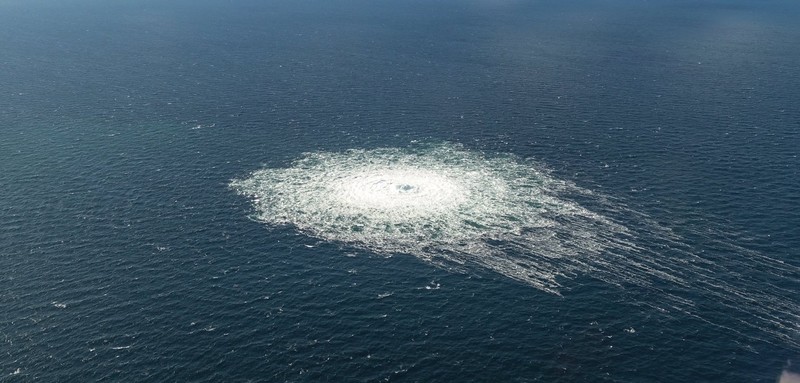In what sounds like a James Bond plot, Danish, German, and Polish officials believe that leaks in Russia’s Nord Stream 1 and 2 gas pipelines were likely caused by acts of sabotage.
What happened: On Tuesday, Sweden reported two leaks in the Nord Stream 1 pipeline close to the Danish island of Bornholm, mere hours after Denmark reported a separate leak in the Nord Stream 2 pipeline in the same area.
- Neither leaks affect immediate Russian gas exports to Europe as Nord Stream 1 flows had been indefinitely suspended and Nord Stream 2 never even began operations after Germany effectively cancelled it following Russia’s invasion of Ukraine.
- Given the close proximity and timing of the leaks, officials say it’s unlikely they were accidental. Plus, Sweden’s National Seismology Centre detected two powerful blasts on Monday in the area.
Why it’s happening: It’s not obvious who stands to gain from blowing up two non-operational pipelines, but there are some early suspects in this geopolitical whodunnit:
- A Ukrainian official was quick to point the finger at Russia, claiming it was an act to further destabilize Europe’s economy.
- However, Ukraine has its own motives as the country has long opposed the Nord Stream pipelines for economic and political reasons.
- The leaks could also be tied to the soon-to-be-operational Baltic Pipeline that is delivering Norwegian gas to Poland for the first time.
Why it matters: As one energy expert told the Financial Times, “The probability of Nord Stream 1 coming back before the end of the year has essentially dropped from 1% to 0%.”
- Not only have near-future Russian gas prospects for Europe evaporated, but the potential that Europe might never get Russian gas again has also increased substantially.
Bottom line: Europe now has enough liquefied natural gas lined up to make it through winter, per Bloomberg, but this development adds yet another complication to an already volatile situation.
